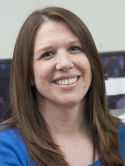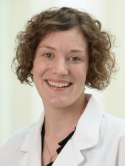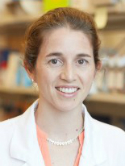Clinical utility of prospective molecular characterization in advanced endometrial cancer Journal Article
| Authors: | Soumerai, T. E.; Donoghue, M. T. A.; Bandlamudi, C.; Srinivasan, P.; Chang, M. T.; Zamarin, D.; Cadoo, K. A.; Grisham, R. N.; O'Cearbhaill, R. E.; Tew, W. P.; Konner, J. A.; Hensley, M. L.; Makker, V.; Sabbatini, P.; Spriggs, D. R.; Troso-Sandoval, T. A.; Charen, A. S.; Friedman, C.; Gorsky, M.; Schweber, S. J.; Middha, S.; Murali, R.; Chiang, S.; Park, K. J.; Soslow, R. A.; Ladanyi, M.; Li, B. T.; Mueller, J.; Weigelt, B.; Zehir, A.; Berger, M. F.; Abu-Rustum, N. R.; Aghajanian, C.; DeLair, D. F.; Solit, D. B.; Taylor, B. S.; Hyman, D. M. |
| Article Title: | Clinical utility of prospective molecular characterization in advanced endometrial cancer |
| Abstract: | Purpose: Advanced-stage endometrial cancers have limited treatment options and poor prognosis, highlighting the need to understand genetic drivers of therapeutic vulnerabilities and/or prognostic predictors. We examined whether prospective molecular characterization of recurrent and metastatic disease can reveal grade and histology-specific differences, facilitating enrollment onto clinical trials. Experimental Design: We integrated prospective clinical sequencing and IHC data with detailed clinical and treatment histories for 197 tumors, profiled by MSK-IMPACT from 189 patients treated at Memorial Sloan Kettering Cancer Center. Results: Patients had advanced disease and high-grade histologies, with poor progression-free survival on first-line therapy (PFS1). When matched for histology and grade, the genomic landscape was similar to that of primary untreated disease profiled by TCGA. Using multiple complementary genomic and mutational signature-based methods, we identified patients with microsatellite instability (MSI), even when standard MMR protein IHC staining failed. Tumor and matched normal DNA sequencing identified rare pathogenic germline mutations in BRCA2 and MLH1. Clustering the pattern of DNA copy-number alterations revealed a novel subset characterized by heterozygous losses across the genome and significantly worse outcomes compared with other clusters (median PFS1 9.6 months vs. 17.0 and 17.4 months; P 1⁄4 0.006). Of the 68% of patients harboring potentially actionable mutations, 27% were enrolled to matched clinical trials, of which 47% of these achieved clinical benefit. Conclusions: Prospective clinical sequencing of advanced endometrial cancer can help refine prognosis and aid treatment decision making by simultaneously detecting microsatellite status, germline predisposition syndromes, and potentially actionable mutations. A small overall proportion of all patients tested received investigational, genomically matched therapy as part of clinical trials. © 2018 American Association for Cancer Research. |
| Journal Title: | Clinical Cancer Research |
| Volume: | 24 |
| Issue: | 23 |
| ISSN: | 1078-0432 |
| Publisher: | American Association for Cancer Research |
| Date Published: | 2018-12-01 |
| Start Page: | 5939 |
| End Page: | 5947 |
| Language: | English |
| DOI: | 10.1158/1078-0432.Ccr-18-0412 |
| PROVIDER: | scopus |
| PMCID: | PMC6279519 |
| PUBMED: | 30068706 |
| DOI/URL: | |
| Notes: | Clin. Cancer Res. -- Export Date: 2 January 2019 -- Article -- CODEN: CCREF -- Source: Scopus |
Altmetric
Citation Impact
BMJ Impact Analytics
MSK Authors
-
 270
270Makker -
 8
8Gorsky -
 786
786Solit -
 156
156Konner -
 903
903Abu-Rustum -
 202
202Zamarin -
 262
262Sabbatini -
 1336
1336Ladanyi -
 308
308Park -
 178
178Grisham -
 275
275O'Cearbhaill -
 290
290Hensley -
 797
797Soslow -
 354
354Hyman -
 346
346Zehir -
 220
220Murali -
 616
616Aghajanian -
 248
248Tew -
 325
325Spriggs -
 781
781Berger -
 106
106DeLair -
 238
238Taylor -
 113
113Cadoo -
 646
646Weigelt -
 187
187Mueller -
 148
148Chiang -
 29
29Chang -
 279
279Li -
 19
19Soumerai -
 84
84Middha -
 123
123Friedman -
 4
4Schweber -
 30
30Srinivasan -
 99
99Donoghue -
 82
82Bandlamudi
Related MSK Work





